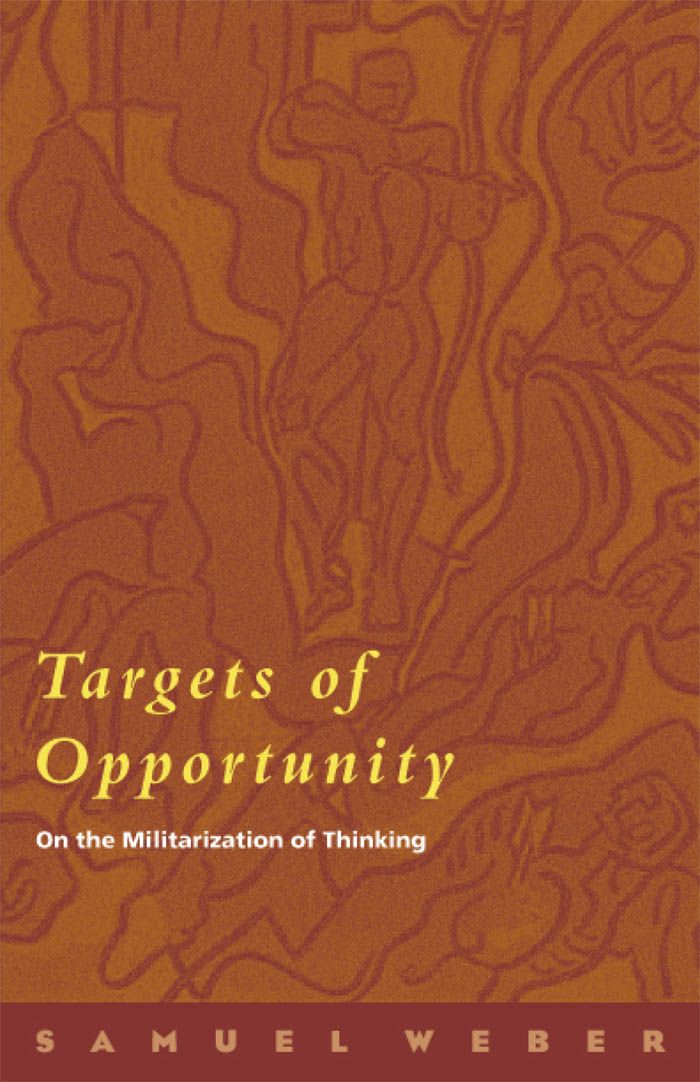Targets of Opportunity
On the Militarization of Thinking

This book can be opened with

The title of this book echoes a phrase used by the Washington Post to describe
the American attempt to kill Saddam Hussein at the start of the war against
Iraq. Its theme is the notion of targeting (skopos) as the name of an intentional
structure in which the subject tries to confirm its invulnerability by aiming to
destroy a target. At the center of the first chapter is Odysseus’s killing of the suitors;
the second concerns Carl Schmitt’s Roman Catholicism and Political Form; the
third and fourth treat Freud’s “Thoughts for the Times on War and Death” and
“The Man Moses and Monotheistic Religion.” Weber then traces the emergence
of an alternative to targeting, first within military and strategic thinking itself
(“Network Centered Warfare”), and then in Walter Benjamin’s readings of
“Capitalism as Religion” and “Two Poems of Friedrich Hölderlin.”
An extraordinary book by one of our most distinguished literary and cultural theorists. Weber's main theme is that 'targeting' is an effort to overcome finitude-our human condition of being consigned to death, limited to singular times and places, and vulnerable to the workings of chance. By targeting another (at the limit, by killing another) we seek to evade the truth of our own condition.
“Sam Weber has, over the years, established himself as one of the major critical
thinkers of our time, a true philosopher of the event and of the medial condition.
Weber extends our understanding of cognition and information networks
as they have been mobilized in the wake of Sept. 11 and the ‘war on terror.’
. . . In addition to offering a way around the intellectual impasse of ‘terror’
as a political construct, the book provides an education in how to think
philosophically about life and politics.”
Samuel Weber has been one of the most important critical voices
within the fields of literary theory, psychoanalysis, philosophy, and
media theory for more than thirty years now. He is a luminous,
intricate, and preeminently ethical critic whose work has helped
define the stakes and tasks of research and scholarship in the
humanities during this era of great transformation. . . . What is
perhaps most persuasive about this book is its capacity not only to
enhance our understanding of the several authors and texts with
which it is concerned but also to address and explore some of the
most pressing and urgent ethical and historico-political issues of
our time, including war, violence, technology, media, nationalism,
and sovereignty. That Weber is able to address these
contemporary issues through the lens of our literary, philosophical,
and psychoanalytic inheritance is perhaps the best testament to his
conviction that we can only address the present and facilitate a
future by learning to read historically. A richly demanding work, it
reaffirms his stature as one of the finest critics inside and outside
the academy.
These essays bristle with provocative and illuminating insights into the works of Plato, Carl Schmitt, and Walter Benjamin.——Choice

